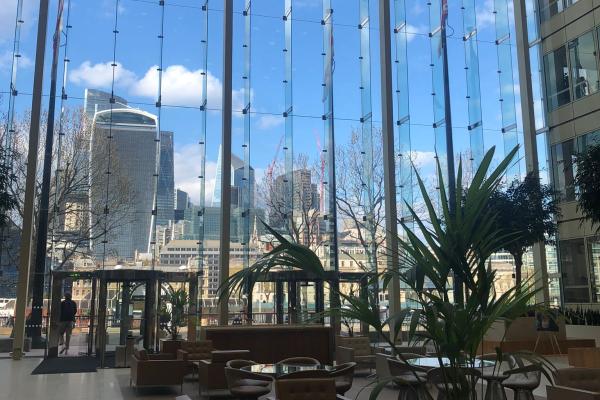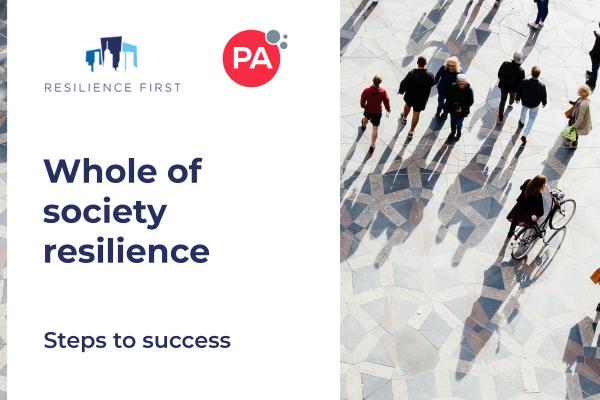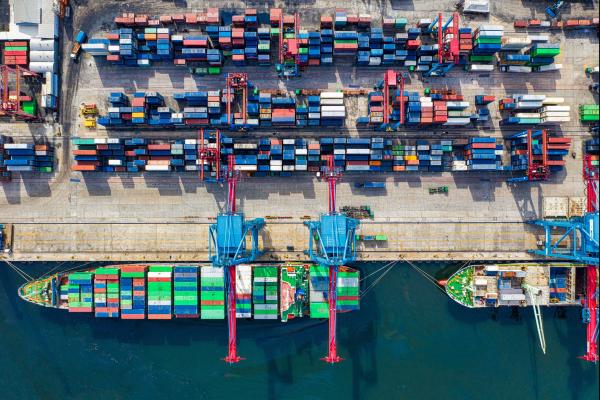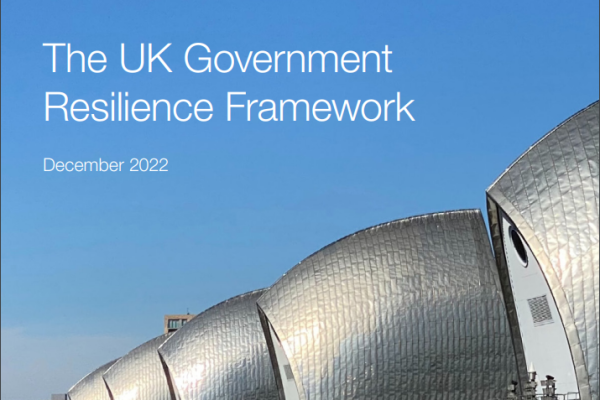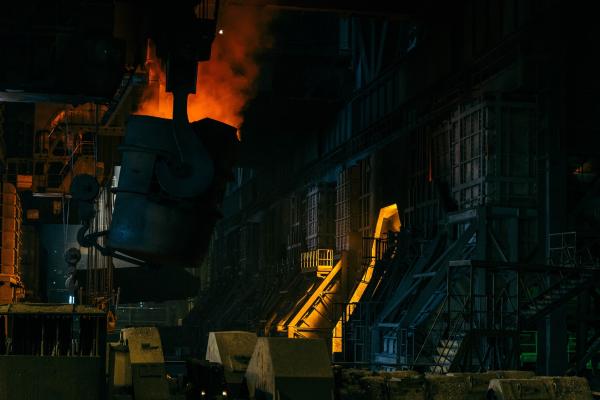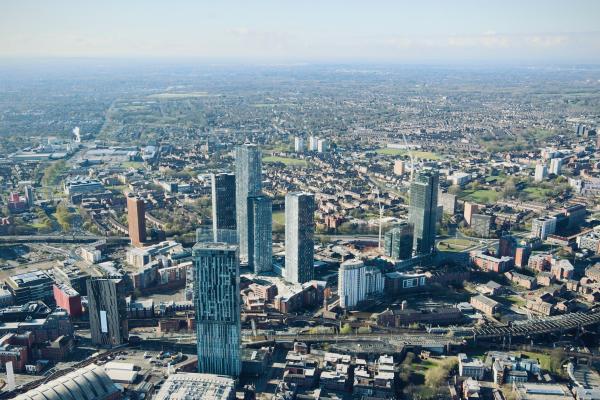Road to COP28 | May 2023
As part of our commitment to drive resilience at scale, Resilience First will be working closely with the UN High-Level Climate Champions’ (HLC) teams and the Race to Resilience Campaign, which some of our members have been engaged with since 2021. In this regular series, we will be keeping you up to date with the key highlights and activities within the current Egyptian presidency, and as well as what to expect for COP28 as preparations get underway.
Local Planning and Resilience
The UK is entering a new era of resilience planning with the recently published UK Government Resilience Framework, how will the policy that controls development in the UK assist us in making our communities and the businesses within more resilient?
Spring Reception Recap
Since Covid many organisations have become more resilient simply because of the pandemic, surprisingly they worked out different ways to continue to deliver what they were doing, as for most of them pandemic wasn’t in their business continuity plans and just wasn’t in their thinking pre-Covid. Nevertheless, at senior levels in organisations, there is still a confusion about what resilience is, what it means for an organisation and what they need to do about it.
Resilient leaders learn, they are not born
Resilient leaders are not born. It is a lifelong learning journey that begins in childhood, overcoming obstacles to develop self-awareness, having transformative conversations to bring clarity in crises, and building a resilient mindset to create the agency for change. A continual learning journey.
MIPIM 2023 Round Up
We had a very successful trip to Cannes for MIPIM 2023, and we thank our members for joining our events on the roof top, the challenging wind has arguably made us more resilient…
Road to COP28
In this new regular series, we will be keeping you up to date with the key highlights and activities within the current Egyptian presidency, as well as what to expect for COP28 as preparations get underway.
Whole of Society Resilience – Report summary
In February 2023 Resilience First, with PA Consulting, published a new report – Whole of Society Resilience: Steps to Success.
The report focuses on action that aligns with the UK Government’s Resilience Framework ambitions to strengthen and underpin systems that provide national resilience to the threats we now face. Find out what’s inside and why your action matters.
Resilient Leadership in a VUCA world
What kind of leadership is needed for this Volatile, Uncertain, Complex and Ambiguous (VUCA) world we now live in, and how can leaders be better prepared for the challenges that this type of uncertainty creates, so that businesses don’t just survive but thrive?
Supply chains and critical infrastructure: A nexus of opportunities and vulnerabilities
In today’s globalised economy, infrastructures and supply chains are closely related. The vast interdependencies create vulnerabilities stemming from cascading failures, which occur when a disruption in one system deprives another system of its required inputs or support services. What does this mean for organisational resilience?
Engineering Leadership Group launches new Manifesto ahead of World Engineering Day
One year after the establishment of the Engineering Leadership Group (ELG), the new ELG Manifesto has been launched.
The Manifesto advocates for infrastructure that is fit for the future, while outlining actions that can be taken by engineering-inclusive organisations to advance the development of equitable, sustainable and resilient infrastructure. It calls on private sector organisations to work closely with governments towards this goal.
Meet our latest additions to the team
Recently we added two new stars to the team: Shazre Quamber-Hill, Director of Network Strategy and Impact, and George Karagiannis, Engineering Leadership Group Director.
To get to know Shazre and George, we invited them for a Q&A session.
Resilience First names Rick Cudworth as new Chair
Resilience First is delighted to announce Rick Cudworth as its new Chair.
Rick’s appointment follows the recruitment of Martyn Link as Executive Director who joined Resilience First in September 2022.
Critical Infrastructure Resilience to Climate Change
Today’s infrastructures were designed 50 or 100 years ago, based on past assumptions. Climate change is already stressing these same systems by exposing them to greater hazard intensities than what they were originally designed for. How does organisational resilience need to adapt for the future?
Resilience First, with PA Consulting, releases new report – Whole of society reslience: Steps to success
A new report on steps needed to achieve whole of society resilience has been produced by Resilience First in collaboration with PA Consulting. ‘Whole of society reslience: Steps to success’ report focuses on activity that aligns with the UK Government’s Resilience Framework ambitions, which can be developed and actioned over the coming year.
How to make your business resilient to supply chain challenges in 2023
Supply chains have recently been facing increasing pressure from multiple stressors, including the global Covid-19 pandemic (and Brexit in the UK), and in 2023 these strains do not seem to be slowing down.
In this article, we delve into the top supply chain challenges, and what businesses are doing to address them, remain resilient, and not only survive, but thrive in 2023 and beyond.
A call to action for business resilience
Improving an entire country’s ability to prepare for, respond to and recover from extremely challenging events is a monumental task. What can you do as a business leader to shape a better, more resilient future for all?
Resilience First response to Climate Champions on COP15: Biodiversity Summit
According to the World Economic Forum’s Global Risks Report (2020), more than half the world’s GDP ($44tn) is at risk of disruption due to nature loss. Nature-positive business models on the other hand, have the potential to generate $10 trillion in annual business opportunities and create 395 million jobs by 2030.
Resilience First responded to the Race to resilience Campaign on the significance of COP15 and the role that the UNFCC High Level Climate Champions can play in putting a spotlight on the biodiversity conservation agenda.
Resilient Mindsets — for a Whole of Society Approach to Resilience
Personal Resilience is a Mind Set. Most of our formal education and training systems don’t produce this quality as a learning outcome in their graduands. If we are to achieve a whole of society approach to national resilience, then we also have to have a ‘whole of the person’ approach to education, training and learning.
Resilience for High Performance: How to navigate burnout and retention challenges in an economic slowdown
What should leaders do to create a thriving workplace that people will not only want to join and stick around in, but that will inspire creativity, innovation and high performance?
Professionalising Purpose
July 2022 was the month that Boris Johnson resigned, and the launch of PAS 808. One gained more press attention than the other. However, whilst Boris is consigned to the backbenches, purpose is gathering momentum. As businesses face an increasingly uncertain 2023, the words of The Purpose Upgrade resonate. “Change your business to save the world. Change the world to save your business”.
The UK Government publishes a Framework for Resilience
Implications for businesses from the Phase 2 of the Grenfell Tower Inquiry
The tragedy that occurred in June 2017 was completely avoidable. 5 years on, there are still important lessons to learn.
Resilience First, in partnership with the Fire Protection Association, brought together a panel of industry experts over a live session discussing the outcomes of Phase 2 of the inquiry, the revised regulatory landscape and the implications for businesses. What does the Grenfell Tower Inquiry mean for business from a regulatory and advisory standpoint?
Business Resilience on Industrial Sites
An industrial fire, or indeed any major incident will significantly disrupt a business. How well prepared and resilient that business is, will be critical in determining the scale of the impact. In this article, we will look at the effects of industrial fire and what businesses can do to improve their resilience. But first, what do we mean by resilience?
Resilient Urban Growth – the Greater Manchester challenge
Decarbonising the world is the defining resilience challenge of the early 21st century. The UK is the fastest decarbonising of the G7 countries with 50% of electricity in the UK last year generated by low carbon sources.
70% of carbon emissions come from urban populations. How will the UK achieve this decarbonisation and how do you make already green city regions like Greater Manchester even greener?



